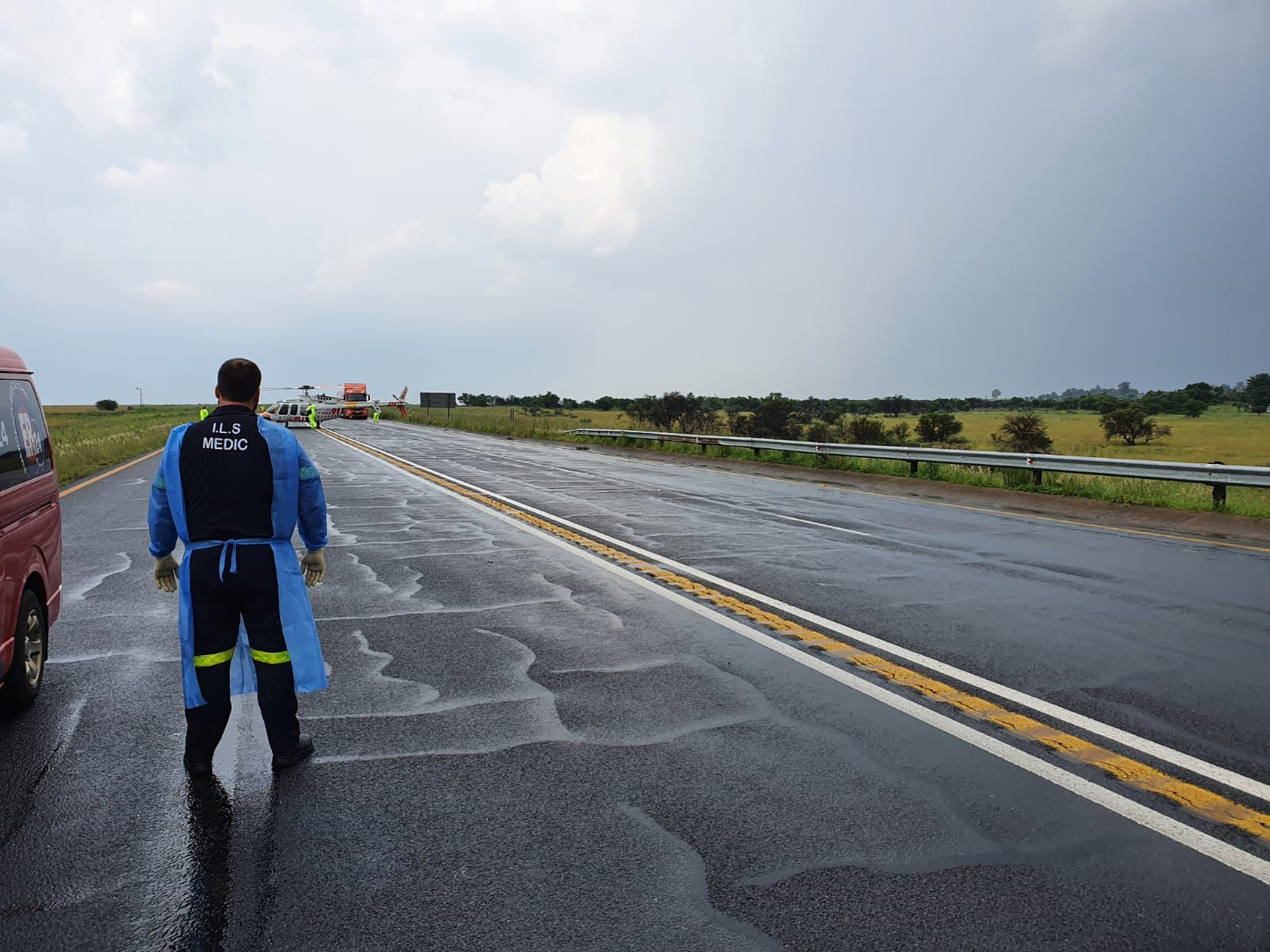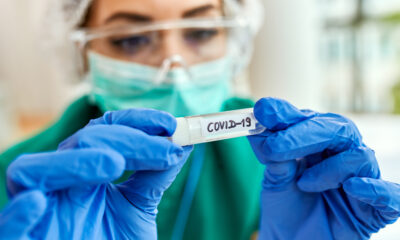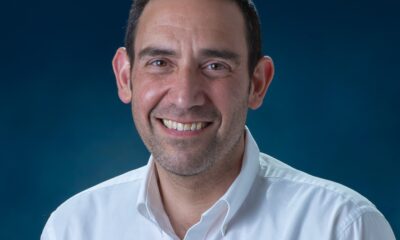
Featured Item

Hatzolah moves mountains during second wave
Published
3 years agoon
By
Nicola MiltzWhen the second and more virulent COVID-19 wave came crashing down at the beginning of the holiday season, Hatzolah Medical Rescue went above and beyond the call of duty to make sure that “No yid gets left behind”.
“We will look after you wherever you are, whatever the circumstances, and make sure you are cared for,” said Uriel Rosen, operations manager of the organisation’s unique COVID Wellness Monitoring Programme.
“We do this because we care,” he told the SA Jewish Report this week.
Faced with a pandemic surge that was bigger and broader than the first one, these death-dealing heroes of humanity shifted gear as the numbers of infections began to soar.
As hundreds of Johannesburg residents made their way to holiday destinations dotted around the country, Hatzolah collaborated and formed new partnerships with healthcare workers and communal leaders, providing an elaborate, intricate network of care.
Every COVID-19-positive patient from game reserves and mountains to far flung coastal seaside towns was kitted with a fingertip pulse oximeter and thermometer. They were then managed remotely by teams of dedicated volunteers whose voice several hundred kilometres away provided much needed comfort, care, and hope.
A family of six in Mozambique – all stricken with the virus – were successfully treated and cared for remotely, said Rosen.
Five critically ill patients were airlifted to hospitals from places in the Eastern and Western Cape.
“All this involves mindboggling logistics,” said Rosen, who this week touched on the colossal planning it took to care for patients during this particularly gruelling period of the pandemic.
They facilitated brain-bending and intricately planned aeromedical and ground operations under intense pressure. These involved anything from arranging aeroplanes, ambulances, car rentals, special vehicle modifications (to separate COVID-19-positive patients from other passengers during long-haul transportation), last-minute hotel accommodation, complicated hospital admissions, and medical aid deliberations involving endless paperwork – all taken care of by a super-stretched and hyper-vigilant rescue team.
Hatzolah medical manager and advanced life support responder, Yudi Singer, said every day was unpredictable, and paramedics needed to act on their feet and rely on their advanced training.
“On one long-haul emergency call to fetch a critically ill COVID-19 patient, our guys were flagged down at an accident scene on the highway far from Johannesburg in bad weather. They had to provide emergency assistance to critically injured patients trapped in a vehicle which had rolled,” he said.
“So even on the way to collect a COVID-19 patient in another province, they had to attend to an unexpected emergency.”
Caring for patients outside the city was one thing, but making sure they travelled safely back home was another matter entirely, said Rosen.
When it became apparent that people were flying home presenting COVID-19 symptoms, Hatzolah urgently appealed to the community to contact the organisation to make alternative arrangements.
“If you have tested positive for COVID-19 or have symptoms and need to return home from holiday, you absolutely cannot fly in an aeroplane and put other people at life-threatening risk,” it stated, pleading with people to call the Wellness Centre for advice.
In separate cases, Hatzolah arranged transport for critical patients from a seaside town south east of Cape Town, and from an arid area in the Karoo, with drivers sometimes travelling through the night.
“We arranged four critically ill patients to be airlifted out of Plettenberg Bay. Two of them weren’t even feeling that sick when our monitoring teams established that their vital signs were critical. This is the nature of the disease. It can catch a patient off guard, sometimes too late,” said Rosen.”
The four patients and another critically ill patient in Port Elizabeth landed up in various intensive-care units on ventilators.
“All five are alive and have since been discharged,” said Rosen.
The difference between the first and second waves has been “insane”, he said.
In seven months from March to October last year, there were 115 hospital admissions and 72 patients who required oxygen at home. Whereas in just more than three months during the second wave, there have been 146 admissions and 85 patients requiring oxygen at home.
“During our second peak, there have been a lot more patients requiring active intense medical care at home and we are running anything up to 100 nurse rounds a day,” said Rosen.
Executive General Manager Darren Kahn said there were 200 active patients at the time of going to print. Eleven nurses looked after the more unwell patients in conjunction with the patients’ doctor. Many of these patients are on oxygen concentrators.
Hatzolah has completed more than 5 000 home-nurse visits. It has monitored and cared for 2 322 COVID-19 positive patients to date, according to Kahn.
“This has required a team of 65 people made up of full-time employees and volunteers who have made more than 42 100 calls to patients,” he said.
The organisation has eight full-time drivers to transport nurses to the homes of COVID-19 positive patients who don’t require an ambulance. They have made more than 5 265 trips to date, he said.
A team of dedicated dispatchers have fielded 10 000 phone calls since the start of COVID-19, and ambulances have responded to 4 458 medical emergencies. This is nearly double the call volume of prior years.
“The numbers speak for themselves. I cannot even begin to express the appreciation that our team deserves for its unbelievable bravery, commitment, and dedication over the past 10 months.”
Singer said the past month had been “tremendously challenging”, with multiple calls coming in at once.
“In the past two weeks, people have needed our help in the middle of the night because they have maybe fallen and cannot call a family member to help because of COVID-19 risks. You won’t find another ambulance service doing this,” he said.
“This pandemic has taught me a lot,” said Rosen. “There are communal organisations and people in the community who will literally do anything, bend over backwards, to help someone in need. They live and breathe in order to protect and care for each other. We are the luckiest community in the world.”
COVID Home Wellness – 060 985 7030 www.hatzolahwellness.co.za
Emotional Wellness line – 010 140 3270











Rochelle Hawkins
Jan 28, 2021 at 12:42 pm
You are the most amazing organization. Hatzolah has been there for us on so many occasions. It is with the most wonderful knowledge that in times of trouble someone will be there for you. Thank you from the bottom of my heart.
Beth-Ann Keschner
Feb 1, 2021 at 10:04 am
Hatzolah have gone above and beyond during this extremely pressurizing time. I am in awe of their dedication and service. Everyone should be making a donation to them!